Saline Considers Allowing Curbside Cannabis Pickup at Dispensaries

Saline is on the brink of making a decision that could enhance convenience for cannabis consumers by potentially allowing dispensaries to provide curbside service. This consideration comes amid a current absence of specific guidelines for curbside sales at local dispensaries, placing the decision in the hands of the Saline City Council.
Recently, on March 4th, the city council took a preliminary step by acknowledging draft regulations that would permit curbside cannabis pickup. A definitive vote on the matter is scheduled for the council's next session on March 18th. Currently, the majority of dispensaries in Saline, despite having city approval or being operational, are restricted from offering curbside pickup due to conditions in their site plans awaiting the city's formal stance on the service. This restriction is highlighted by the situation at Rush Cannabis, the city's inaugural dispensary, which is located on West Michigan Avenue.
Under the proposed curbside service, the process that currently requires customers to enter the store to verify their IDs, pay, and collect their orders would shift to the parking lot. This would involve a salesperson, accompanied by security, using a mobile ID scanner to complete transactions outside the store. Shaun Mansour, owner of Rush Cannabis, emphasized the benefits of such a service, noting its convenience and the privacy it offers customers, particularly on inclement weather days or for those seeking discretion due to their professional lives.
The city's planning department has noted a lack of extensive regulation of curbside cannabis pickup by other cities, with most allowing it. For instance, Ann Arbor made clarifications to its city rules in 2022 to expressly permit this convenience. Saline's planners believe the current zoning code supports curbside pickup in commercial districts but suggest that explicit approval is necessary due to existing site plan restrictions for cannabis retailers.
The proposed guidelines would allow dispensaries to have up to five curbside pickup spots in their parking lots, with no anticipated traffic or parking issues according to city Community Development Director Ben Harrington. Mansour also reassured the city council that the introduction of curbside service is unlikely to cause any significant increase in traffic or inconvenience.
The discussion on curbside pickup is set to continue, with Saline Mayor Brian Marl expecting a thorough debate at the March 18th city council meeting. The council is also keen on community feedback, as highlighted by Council Member Nicole Rice, who also pointed to the significant state marijuana tax revenue contribution from local dispensaries, underscoring the importance of supporting local businesses.
Bad Axe City Council Advances Draft Cannabis Ordinance, Seeks Public Input
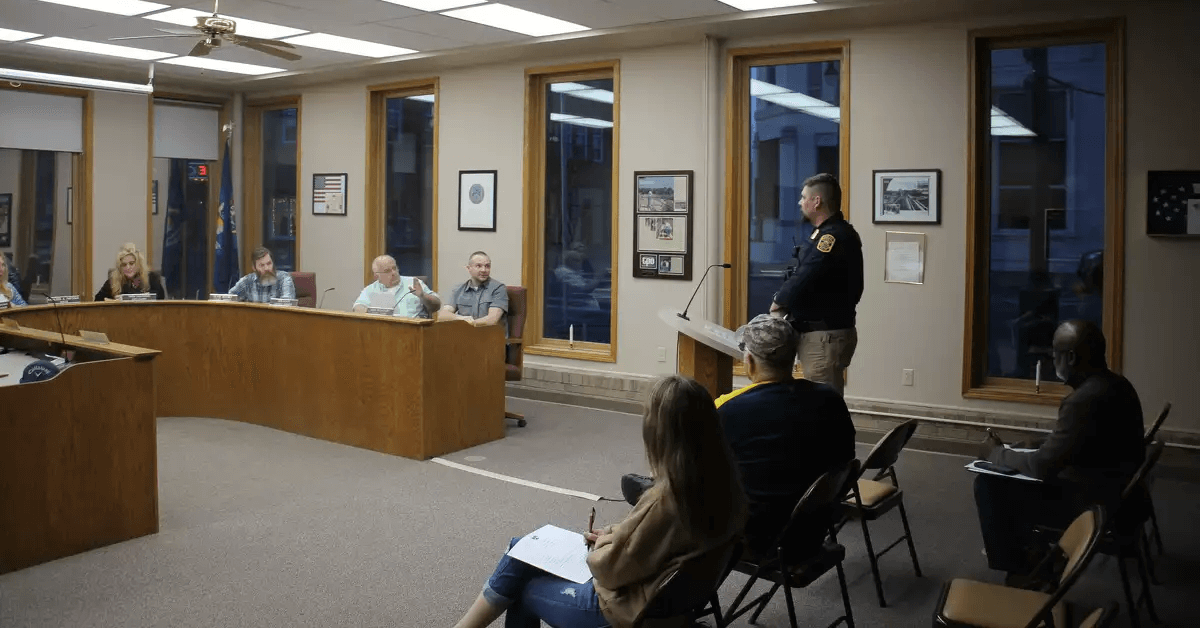
The Bad Axe City Council has taken a significant step towards the regulation of cannabis businesses within the city by voting on the first draft of a new cannabis ordinance. In a unanimous decision, with two members abstaining, the council has moved the ordinance forward to the planning commission for further scrutiny.
City Manager Rebecca Bachman highlighted the ordinance's progression, noting that its passage initiates a series of public hearings conducted by both the planning commission and the city council. This essential phase ensures community engagement and feedback before the ordinance can be finalized and implemented.
During deliberations, Council Member Joel Harrison expressed concerns about the potential impact of new businesses on the city's landscape. He advocated for a requirement that new cannabis businesses occupy existing buildings to prevent the possibility of adding vacant structures to the city if a business fails. Although the current ordinance does not address this preference, Bad Axe Police Chief Shawn Webber and Bachman assured the council that they would investigate how similar concerns were managed by other cities and consider a resolution to incorporate such a requirement.
The proposed ordinance outlines specific regulations for cannabis businesses, allowing for the establishment of micro-businesses and retail stores within designated zones. Micro-businesses, which cultivate and sell their products on-site, are restricted to the industrial district, while retail stores are confined to the business district. Additionally, the ordinance limits the number of each type of business to two within the city.
This movement comes after Michigan voters approved the recreational use of cannabis in 2018 through Proposal 1-18. Despite initial resistance, including a unanimous vote against permitting cannabis facilities in Bad Axe and subsequent rejections of proposals to introduce such establishments, the city council reversed its stance in November 2023. This decision opened the door to recreational cannabis facilities in Bad Axe, marking a significant shift in the city's approach to cannabis regulation.
The region has seen varying responses to cannabis legislation since 2018, with nearby locales adopting different stances on medical and recreational cannabis. Notably, Port Austin Township residents recently voted to prohibit recreational cannabis dispensaries in their area, highlighting the diverse perspectives on cannabis within the surrounding communities.
Pontiac Votes to Open Doors for Recreational Cannabis Dispensaries
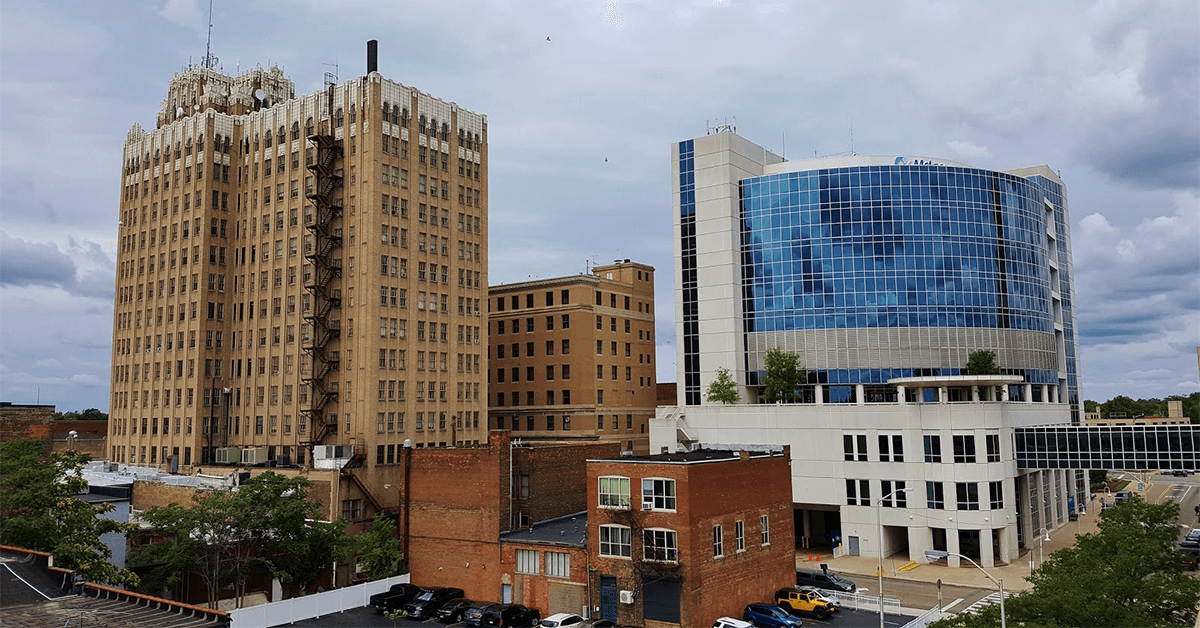
After a decisive vote on Tuesday, Pontiac is set to welcome the establishment of cannabis dispensaries, with 17 recreational cannabis retailers getting the green light from voters. This marks a significant move, shaped by the approval of a ballot proposal that outlines specific regulations and procedures the city must adhere to in the process of issuing licenses to businesses.
The ballot featured two pivotal recreational cannabis retail ordinances. The first, introduced by the Pontiac City Council in April 2023, and the second, an amendment made in October 2023, sought to refine the initial law. Both pieces of legislation faced challenges from various ballot question committees, which temporarily prevented their implementation.
With the passage of Proposal One by a 62% to 38% margin, the October ordinance is slated for activation following the election's certification. This will trigger a series of administrative steps, beginning with Pontiac City Clerk Garland Doyle setting a 21-day period for accepting license applications within 30 days. Additionally, the City Council is tasked with endorsing a scoring system to evaluate these applications.
City Council President Pro-tem William Carrington explained the council's role in approving a scoring guide that will be utilized by the city clerk for application assessment. Meanwhile, City Council President Mike McGuinness anticipates a swift and thoughtful execution of these plans, aiming to open the application window before the end of 2024. McGuinness also expressed a sentiment of fatigue over the prolonged legal and administrative battles surrounding cannabis regulation, highlighting a communal desire to move forward.
The path to this point has been long-awaited, as Pontiac voters had already shown support for medical cannabis dispensaries six years prior, yet no licenses were issued under the previous city administration. The newly passed ordinance prioritizes applicants with existing approvals for medical cannabis operations and introduces a point system that rewards rehabilitation efforts of dilapidated buildings and community philanthropy, among other criteria.
This ordinance encompasses a broad spectrum of regulatory matters, including application procedures, social equity considerations, background checks, and community engagement and improvement initiatives.
The successful passage of Proposal One was largely supported by Sensible Cannabis Reform for Pontiac, a group originally formed to oppose the April ordinance. The campaign received significant backing from Pleasantrees, a company with five dispensaries in Michigan and previous approval for a medical cannabis permit in Pontiac. Niccole Milton, Director of Community Outreach for Pleasantrees, voiced appreciation for the community's decision to further integrate into the regulated cannabis market.
Conversely, the proposal faced opposition from Citizens for Equitable Cannabis Reform. Despite potential for future challenges, Carrington remains hopeful for progress, emphasizing the electorate's desire for the benefits that the cannabis industry could bring to Pontiac.
Caro Voters Say No to Increasing Cannabis Grower Licenses
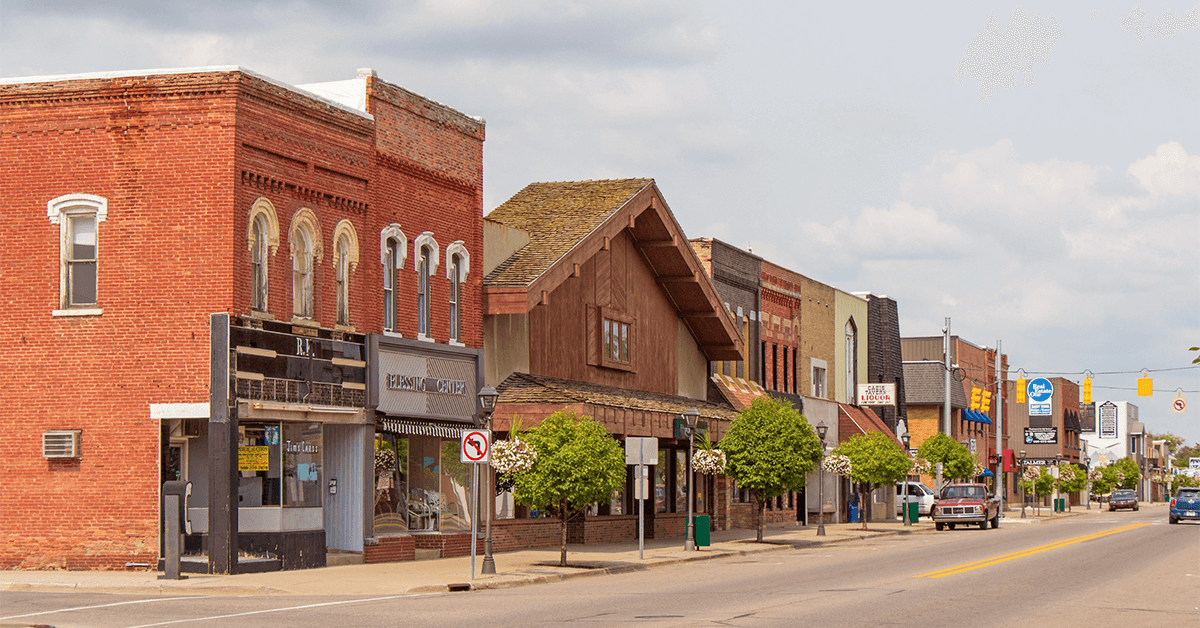
In a decisive move, voters in Caro, Michigan, have made their voices heard by overwhelmingly rejecting a proposal that sought to increase the number of adult-use cannabis grower licenses in the city. The verdict came during the Presidential Primary Election held on Tuesday, where the proposal, championed by the local advocacy group Green Citizens of Caro, faced a significant defeat. Garnering only 310 affirmative votes against 559 negative ones, the initiative failed to secure the community's approval.
The proposal aimed to expand Caro's cannabis industry infrastructure by allowing more adult-use grower licenses beyond the current count. Caro presently hosts two Class C grower licenses and is home to two marijuana dispensaries, Spark Cannabis and Premier Cannabis. Despite the setback, the operation of these dispensaries is expected to continue unaffected, maintaining the status quo within the city's cannabis business landscape.
City Manager Scott Czasak succinctly summed up the election's outcome, stating, "The citizens of Caro have spoken their piece." This sentiment reflects the democratic process at work, highlighting the community's active role in shaping the local cannabis industry's future.
In the run-up to the election, a notable number of Caro residents took to social media to express their unawareness of the proposal's inclusion on the ballot, indicating a possible gap in communication and outreach efforts by its proponents.
As for the Green Citizens of Caro and their future plans, it remains uncertain whether they will attempt to introduce a similar proposal in the upcoming August and November elections. Bianca Golani, who led the signature collection and spearheaded the proposal, was unavailable for comment at the time of this report.
The rejection of this proposal marks a critical juncture for Caro, as it navigates the evolving landscape of the cannabis industry within its jurisdiction. It underscores the importance of community engagement and awareness in the decision-making process regarding local cannabis policy and regulation.
Narrow Defeat for Cannabis Ordinance Amendment in Algonac
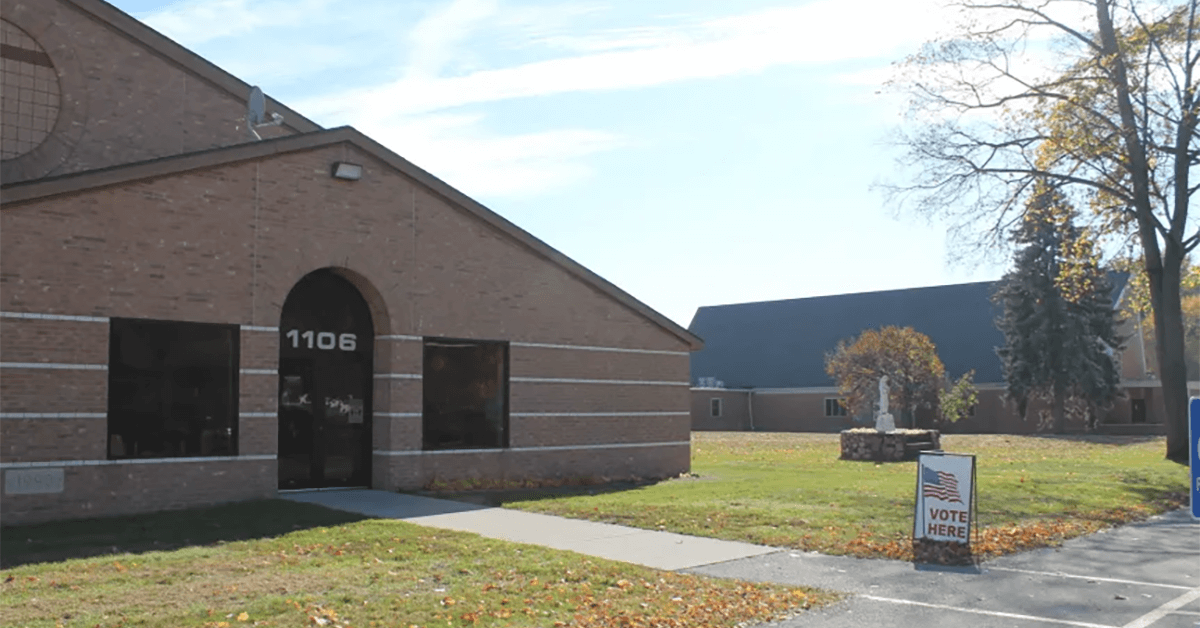
In a recent voting session, the residents of Algonac, Michigan, made their voices heard on several proposals, including a significant marijuana ordinance amendment. The amendment in question aimed at transforming the city's stance on cannabis businesses, proposing the repeal of the existing prohibition on marijuana establishments. Specifically, it sought to introduce a provision for the establishment of a marijuana dispensary within the city. This facility would have been licensed by the state of Michigan to offer both medical and recreational cannabis products, situated within a commercially zoned district of Algonac.
Despite a close contest, the proposal was ultimately not passed. According to the unofficial tally by the St. Clair County Clerk's Office, a narrow majority of 517 voters, accounting for approximately 51% of the total votes, opted against the amendment. In contrast, 503 voters, or about 49%, showed their support for the initiative. This outcome reflects the community's closely divided opinion on the topic of allowing cannabis dispensaries within the city limits.
The rejected proposal had outlined a progressive step towards integrating a state-licensed provisioning center that would cater to both medical and adult-use marijuana consumers. Such a move would have marked a significant shift in the local cannabis landscape, potentially setting a precedent for similar initiatives in other parts of the state. However, with the narrow defeat of the proposal, Algonac's existing ordinance, which prohibits marijuana establishments, remains in effect, maintaining the status quo regarding the availability and distribution of cannabis within the city.
Pontiac Voters to Decide on Cannabis Retail Licensing Amendments
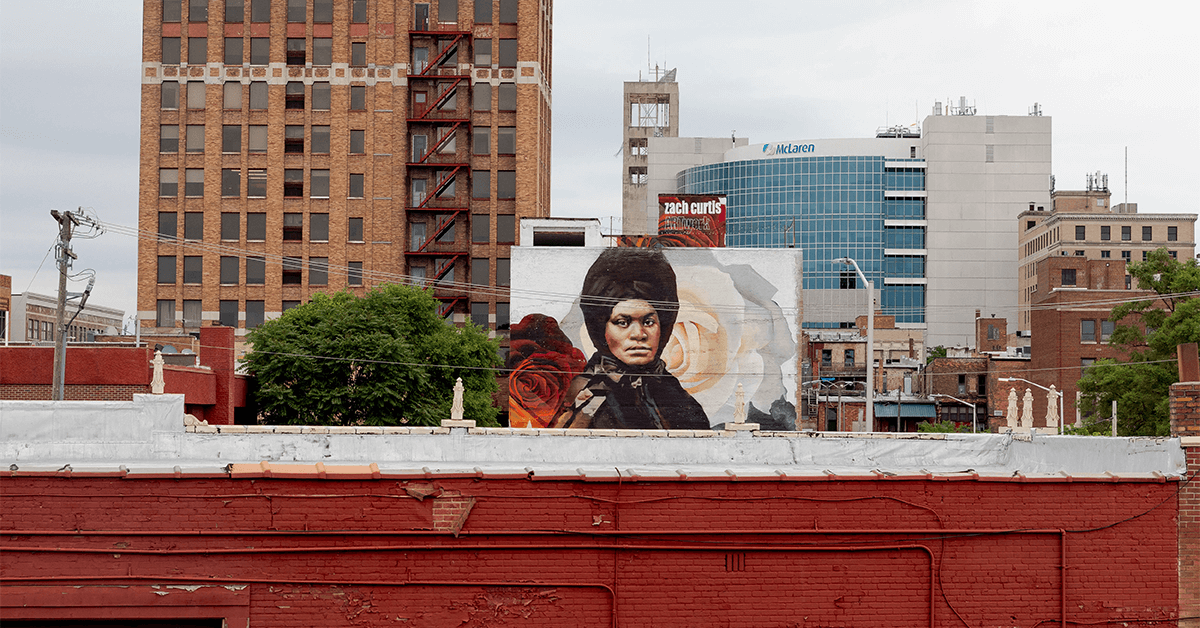
In Pontiac, Michigan, voters are presented with an opportunity to shape the future of the city's cannabis retail business licensing process during the presidential primary on February 27th. The ballot, known as Proposal One, encompasses a comprehensive range of cannabis regulation topics including license distribution methods, application requirements, social equity initiatives, criminal background checks, community outreach, and urban improvement measures.
The debate stems from the introduction of Ordinance 2406 by the Pontiac City Council in April 2023, which sanctioned adult-use cannabis retail outlets and established a licensing framework. Following opposition and a subsequent petition, the council amended this ordinance through Ordinance 2424 in October, aiming to refine the regulations.
The outcome of the vote will determine which set of regulations will be implemented. A 'yes' vote supports the adoption of the revised Ordinance 2424, incorporating the council's latest amendments, whereas a 'no' vote would reinstate the original Ordinance 2406.
Pontiac Mayor Tim Greimel emphasized that the amendments addressed various critical areas including application terminology, ownership criteria, social equity policies, criminal background verification, community engagement, and the rejuvenation of derelict properties. The amendments are positioned as a response to evolving community needs and legal landscapes surrounding cannabis.
This referendum is the most recent in a series of initiatives by independent ballot question committees aiming to influence cannabis retail policy within the Metro Detroit area. These efforts follow the 2018 Michigan Regulation and Taxation of Marijuana Act, which granted municipalities the authority to decide on the presence of adult-use cannabis retailers within their jurisdictions.
The call for this ballot arose when Sensible Cannabis Reform for Pontiac challenged the initial ordinance, temporarily halting its implementation. A subsequent agreement removed the referendum from the November ballot, leading to the introduction of amendments and the formation of the Citizens for Equitable Cannabis Reform to oppose these changes.
The revised Ordinance 2424 aims to streamline the application process, adjusting the definition of an "applicant" and maintaining the city's capacity for up to 17 recreational cannabis retailers, among other designations. It also introduces a more expedited application timeline and a merit-based scoring system, which includes additional points for applicants with existing medical cannabis permits.
The adjustments between the two ordinances reflect a nuanced approach to cannabis regulation, acknowledging past efforts in medical marijuana licensing and adapting to the broader shift towards recreational use. The amendments seek to balance regulatory oversight with opportunities for community investment and social equity, despite the complexities introduced by competing ballot initiatives.
This proposal represents a pivotal moment for Pontiac's cannabis industry and its community, offering a choice between two regulatory paths that reflect broader debates on cannabis policy, social equity, and urban development.


 Helpful Links
Helpful Links